This meticulously designed course provides an in-depth theoretical foundation for the key subjects of the RPSC Assistant Computer Programmer (ACP) examination: Database Management Systems (DBMS), System Analysis and Design (SAD), Software Project Management (SPM), and Computer Networking. Tailored specifically to the RPSC syllabus, this course offers comprehensive coverage of all essential concepts, principles, and methodologies, enabling aspirants to build a strong understanding necessary for success in the examination.
Course Highlights:
- Extensive Theoretical Coverage: Dive deep into the core theories and fundamental principles of DBMS, SAD, SPM, and Networking. This course focuses on providing a robust understanding of each subject's theoretical underpinnings.
- Syllabus-Oriented Content: The course content is strictly aligned with the official RPSC ACP examination syllabus, ensuring that you learn exactly what is required for the exam.
- Structured Learning Approach: Each subject is organized logically with clear explanations, definitions, and illustrative examples to facilitate easy comprehension and retention of complex concepts.
- Focus on Conceptual Clarity: Emphasis is placed on building a strong conceptual understanding of each topic, enabling you to tackle theoretical questions effectively.
- Ideal for Theory-Focused Preparation: This course is specifically designed for candidates who prefer a thorough understanding of the theoretical aspects of these subjects.
Course Modules:
- Database Management Systems (DBMS): Explore the fundamental concepts of database systems, including data models (Relational, E-R, Object-Oriented), database design principles, normalization techniques, SQL (Data Definition Language, Data Manipulation Language, Data Control Language), transaction management, concurrency control, and database recovery mechanisms.
- System Analysis and Design (SAD): Understand the principles and methodologies of system development, including the System Development Life Cycle (SDLC) models, feasibility studies, requirements gathering and analysis, data flow diagrams (DFDs), data dictionaries, entity-relationship diagrams (ERDs), system design principles (input/output design, user interface design), and an introduction to object-oriented analysis and design.
- Software Project Management (SPM): Learn the essential concepts of software project planning, estimation techniques (effort, cost, schedule), risk management, project scheduling and tracking, software quality assurance, and software configuration management. Understand the different project management methodologies and their applications.
- Computer Networking: Gain a comprehensive understanding of computer network fundamentals, including network topologies, network models (OSI, TCP/IP), data transmission media, data link layer protocols, network layer routing algorithms, transport layer protocols (TCP, UDP), and basic concepts of network security.
Who Should Enroll:
- Candidates preparing for the RPSC Assistant Computer Programmer (ACP) examination.
- Individuals seeking a strong theoretical foundation in DBMS, SAD, SPM, and Networking.
- Students who prefer a detailed, concept-driven approach to learning.
Course Benefits:
- Develop a strong theoretical understanding of the core subjects in the RPSC ACP syllabus.
- Gain clarity on complex concepts and principles.
- Build a solid foundation for tackling theoretical questions in the examination.
- Study at your own pace with well-structured and easy-to-understand content.
Enroll Now and build a robust theoretical framework to excel in your RPSC ACP examination!
This meticulously designed course provides an in-depth theoretical foundation for the key subjects of the RPSC Assistant Computer Programmer (ACP) examination: Database Management Systems (DBMS), System Analysis and Design (SAD), Software Project Management (SPM), and Computer Networking. Tailored specifically to the RPSC syllabus, this course offers comprehensive coverage of all essential concepts, principles, and methodologies, enabling aspirants to build a strong understanding necessary for success in the examination.
Course Highlights:
- Extensive Theoretical Coverage: Dive deep into the core theories and fundamental principles of DBMS, SAD, SPM, and Networking. This course focuses on providing a robust understanding of each subject's theoretical underpinnings.
- Syllabus-Oriented Content: The course content is strictly aligned with the official RPSC ACP examination syllabus, ensuring that you learn exactly what is required for the exam.
- Structured Learning Approach: Each subject is organized logically with clear explanations, definitions, and illustrative examples to facilitate easy comprehension and retention of complex concepts.
- Focus on Conceptual Clarity: Emphasis is placed on building a strong conceptual understanding of each topic, enabling you to tackle theoretical questions effectively.
- Ideal for Theory-Focused Preparation: This course is specifically designed for candidates who prefer a thorough understanding of the theoretical aspects of these subjects.
Course Modules:
- Database Management Systems (DBMS): Explore the fundamental concepts of database systems, including data models (Relational, E-R, Object-Oriented), database design principles, normalization techniques, SQL (Data Definition Language, Data Manipulation Language, Data Control Language), transaction management, concurrency control, and database recovery mechanisms.
- System Analysis and Design (SAD): Understand the principles and methodologies of system development, including the System Development Life Cycle (SDLC) models, feasibility studies, requirements gathering and analysis, data flow diagrams (DFDs), data dictionaries, entity-relationship diagrams (ERDs), system design principles (input/output design, user interface design), and an introduction to object-oriented analysis and design.
- Software Project Management (SPM): Learn the essential concepts of software project planning, estimation techniques (effort, cost, schedule), risk management, project scheduling and tracking, software quality assurance, and software configuration management. Understand the different project management methodologies and their applications.
- Computer Networking: Gain a comprehensive understanding of computer network fundamentals, including network topologies, network models (OSI, TCP/IP), data transmission media, data link layer protocols, network layer routing algorithms, transport layer protocols (TCP, UDP), and basic concepts of network security.
Who Should Enroll:
- Candidates preparing for the RPSC Assistant Computer Programmer (ACP) examination.
- Individuals seeking a strong theoretical foundation in DBMS, SAD, SPM, and Networking.
- Students who prefer a detailed, concept-driven approach to learning.
Course Benefits:
- Develop a strong theoretical understanding of the core subjects in the RPSC ACP syllabus.
- Gain clarity on complex concepts and principles.
- Build a solid foundation for tackling theoretical questions in the examination.
- Study at your own pace with well-structured and easy-to-understand content.
Enroll Now and build a robust theoretical framework to excel in your RPSC ACP examination!
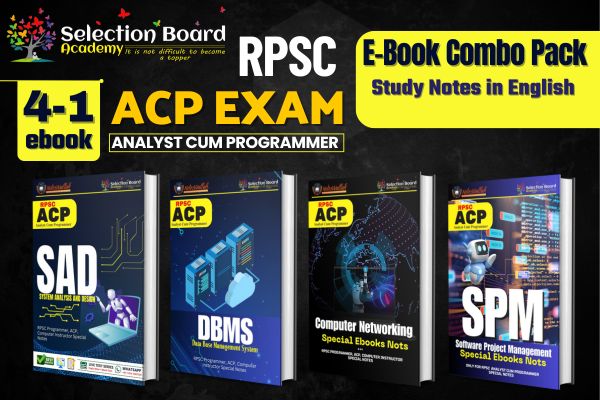
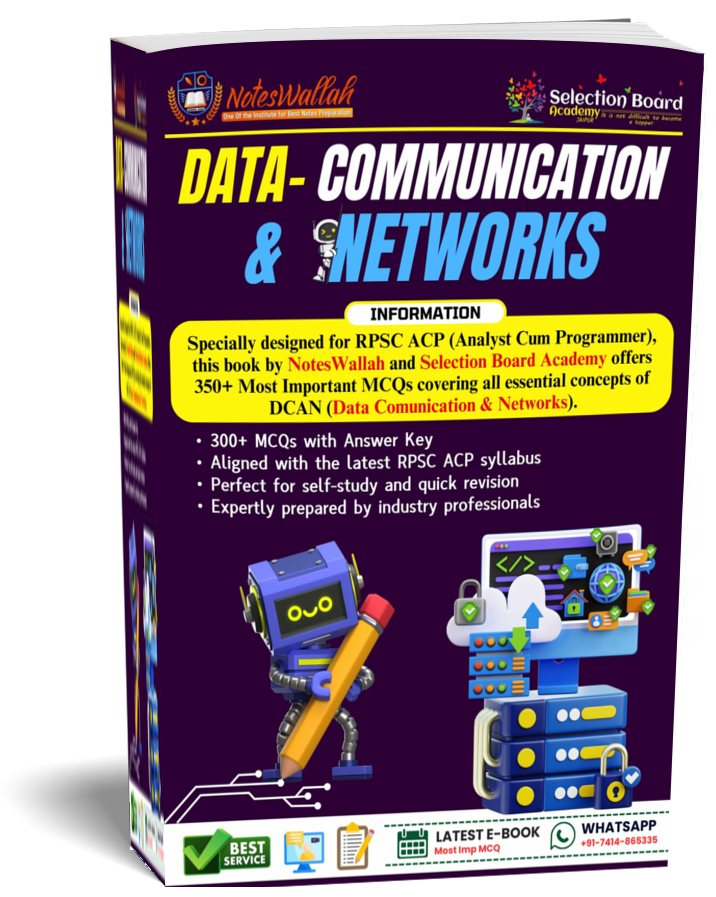
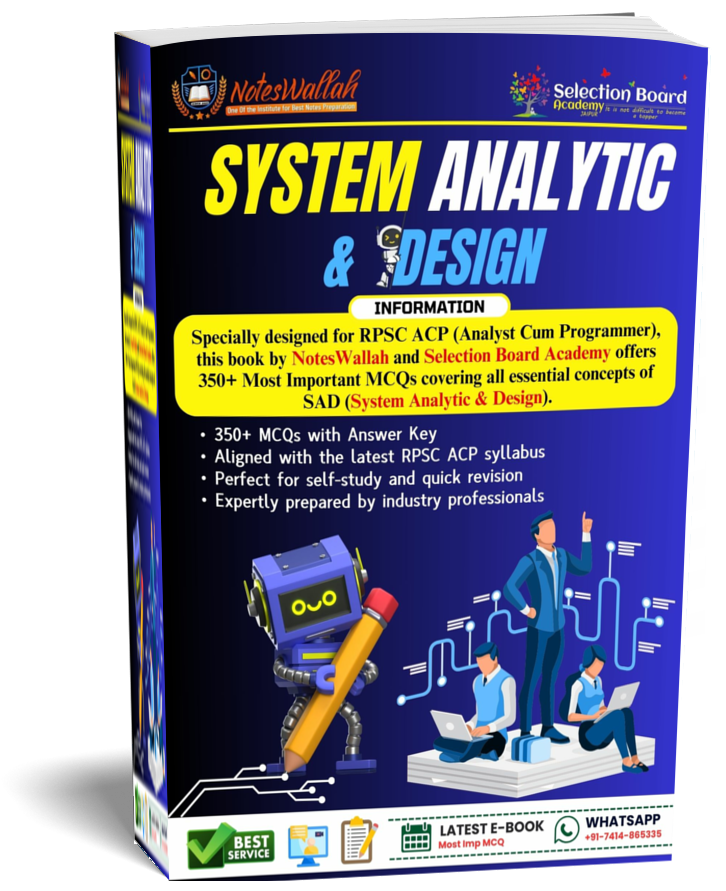
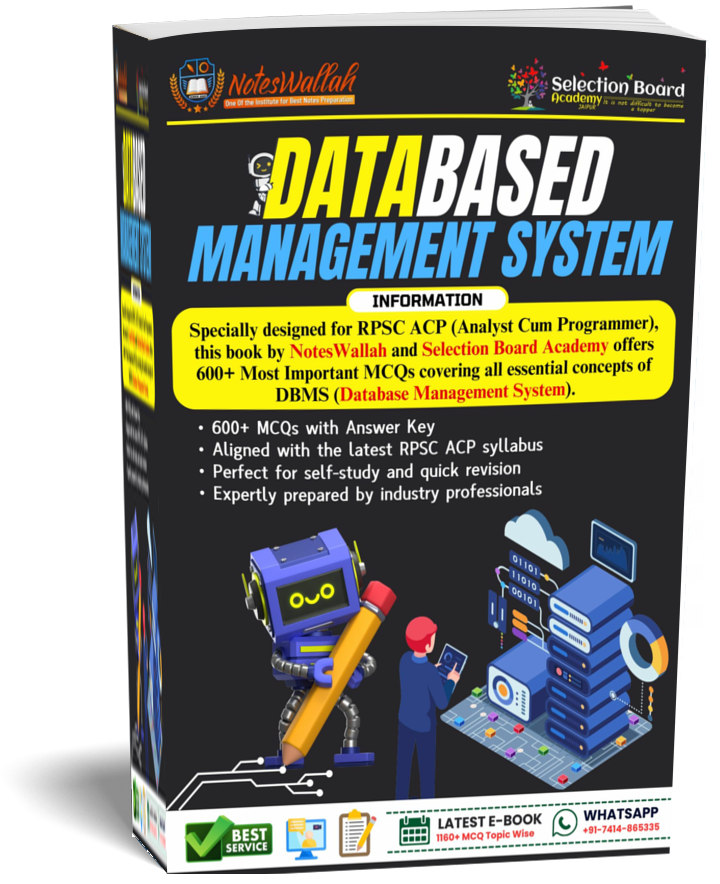
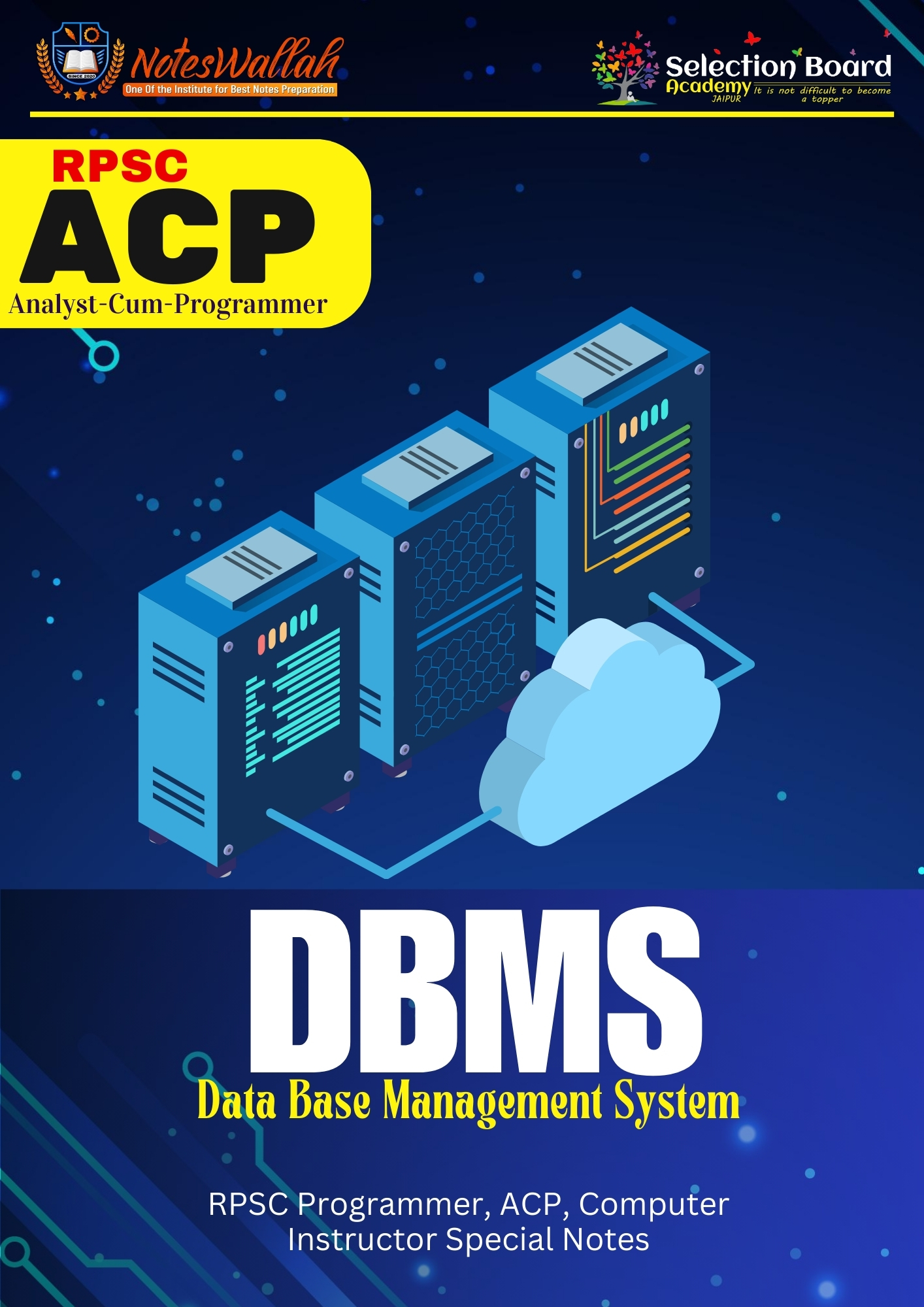
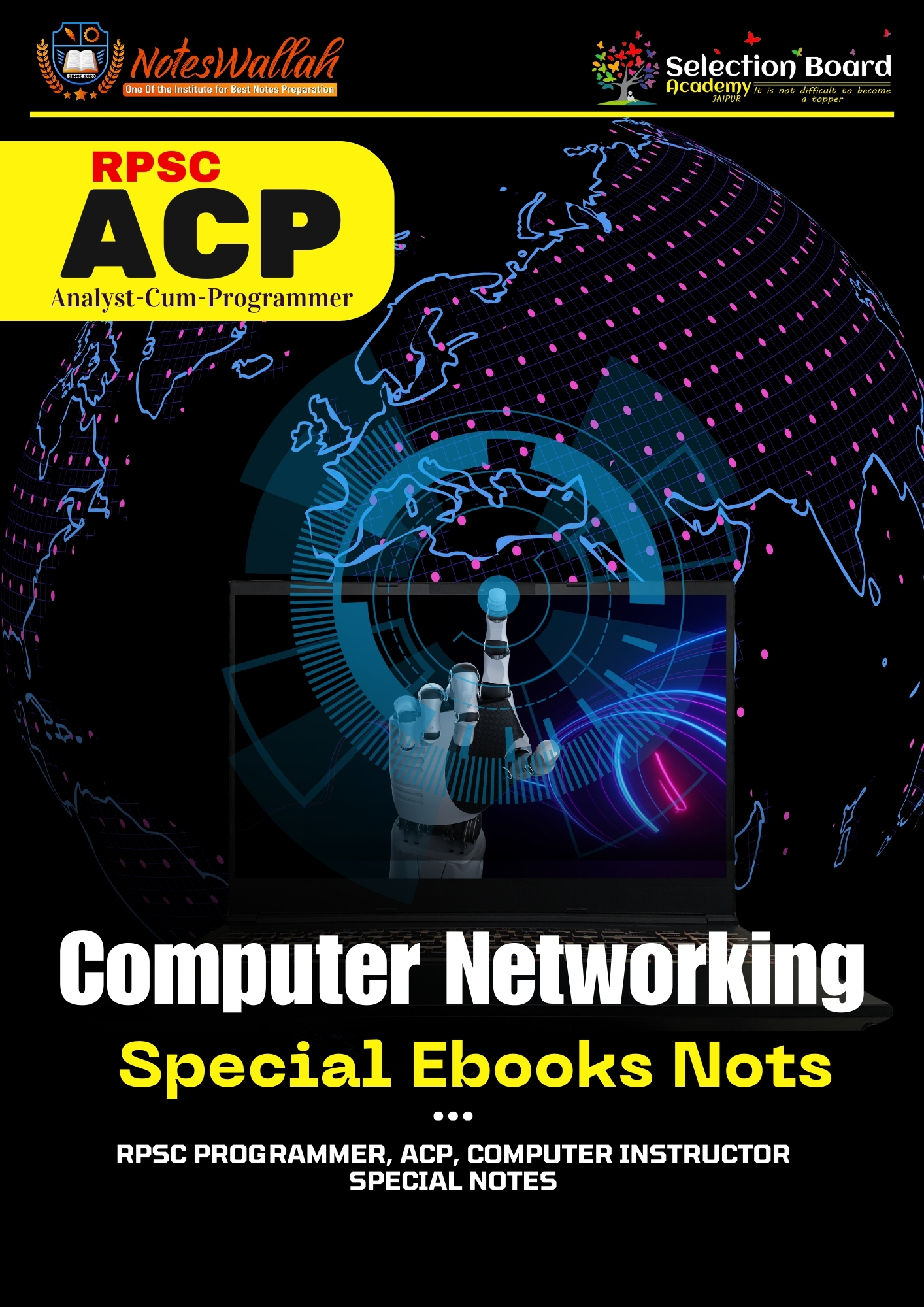

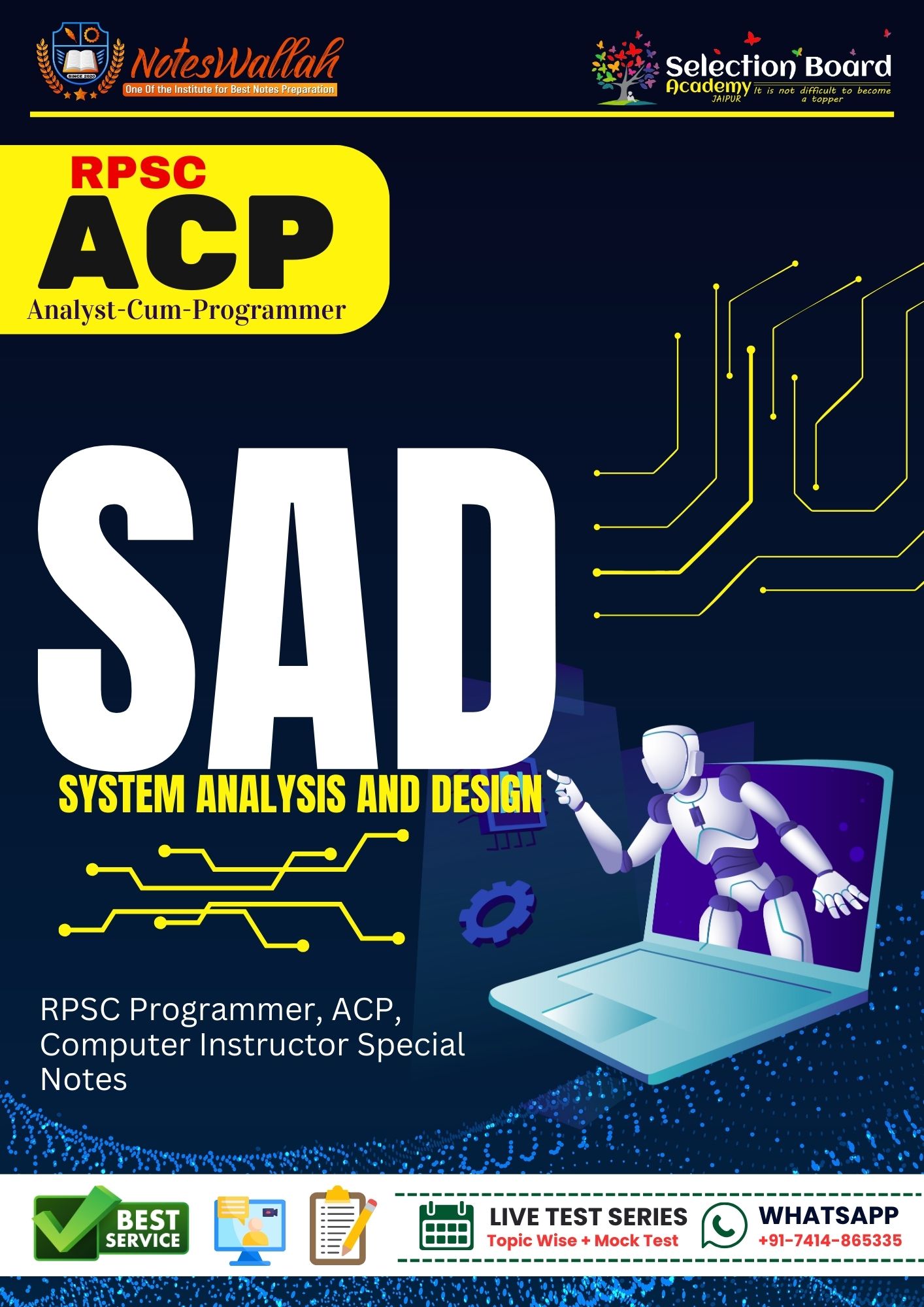
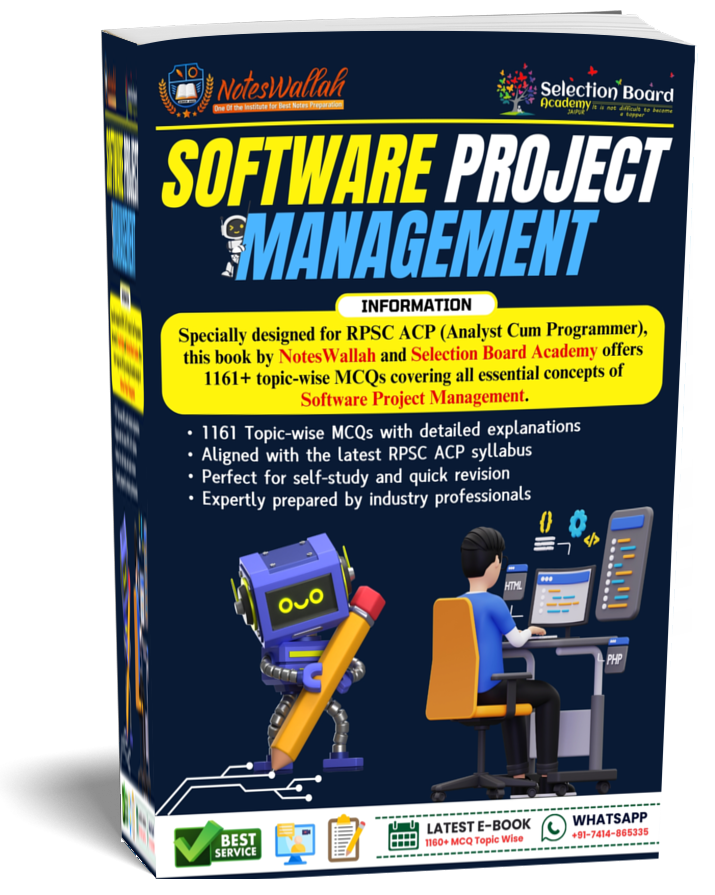
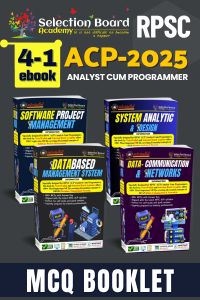
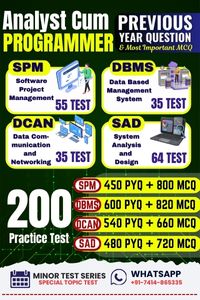
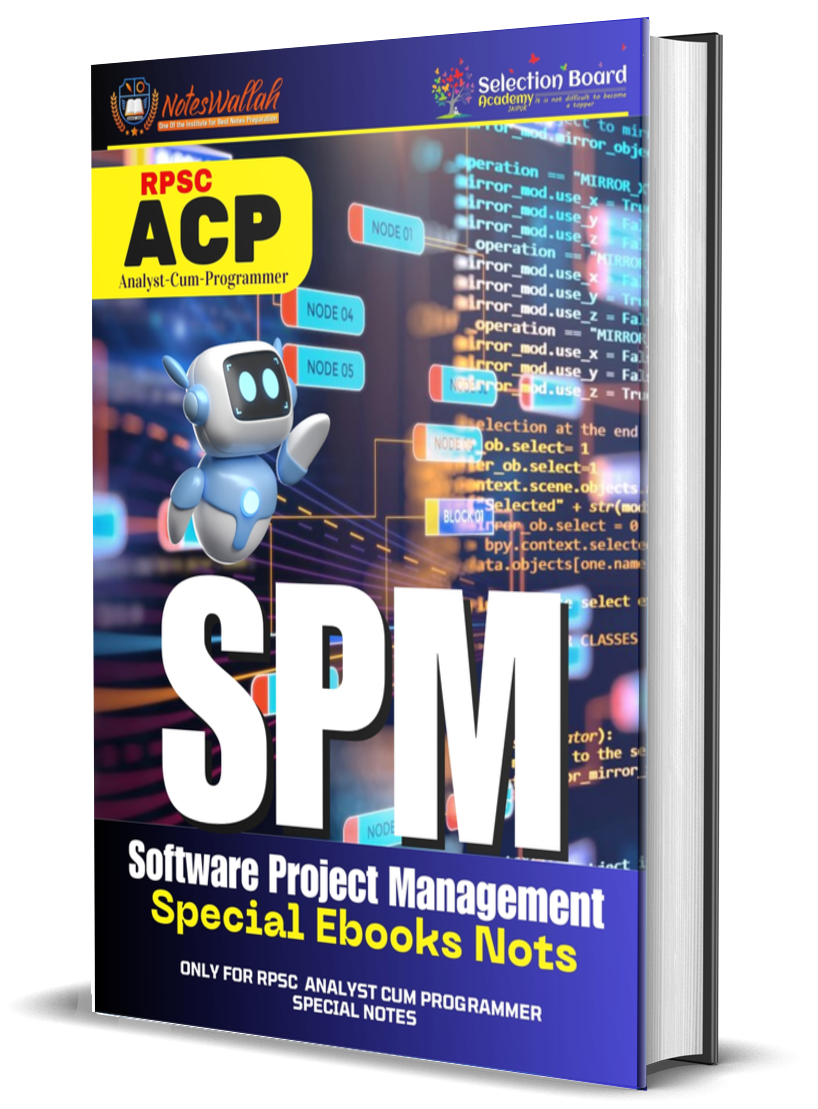

.png)

